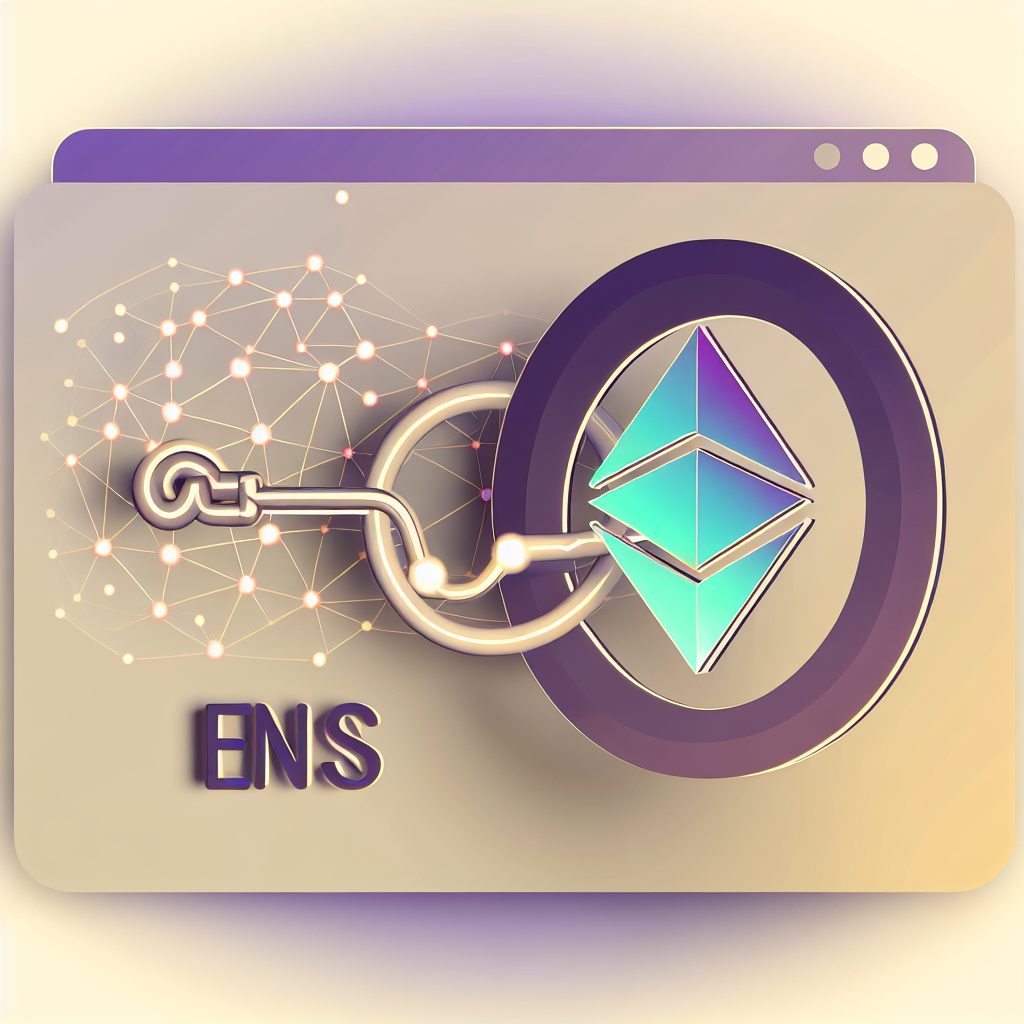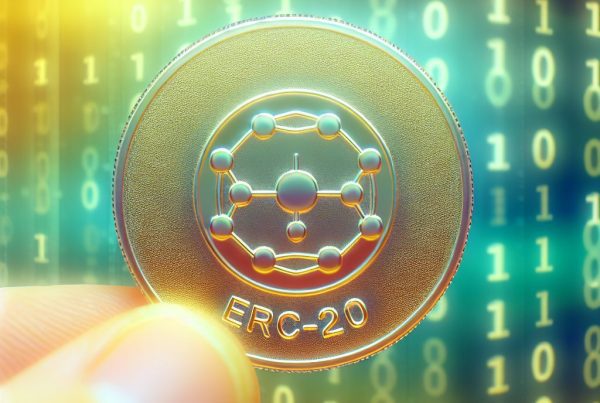How to Use ENS for Web3 Domains
The Ethereum Name Service (ENS) has emerged as a pivotal tool in the cryptocurrency landscape, enabling users to register human-readable domain names that link to Ethereum addresses, smart contracts, and other decentralized resources. This article delves into the intricacies of using ENS for Web3 domains, providing a comprehensive guide for both newcomers and seasoned crypto enthusiasts.
What is ENS?
ENS is a decentralized naming system built on the Ethereum blockchain. It allows users to replace long, complex Ethereum addresses with simple, memorable names. For instance, instead of sending funds to 0x32Be343B94f860124dC4fEe278FDCBD38C102D88, you can send them to alice.eth. This not only simplifies transactions but also enhances user experience in the Web3 ecosystem.
Why Use ENS for Web3 Domains?
Utilizing ENS for Web3 domains offers several advantages:
- Simplicity: Human-readable names make it easier to send and receive cryptocurrencies.
- Decentralization: ENS operates on the Ethereum blockchain, ensuring that no single entity controls the domain names.
- Interoperability: ENS can be used across various decentralized applications (dApps) and wallets.
- Enhanced Security: By using ENS, users can reduce the risk of sending funds to the wrong address.
How to Register an ENS Domain
Registering an ENS domain is a straightforward process. Here’s a step-by-step guide:
Step 1: Set Up an Ethereum Wallet
Before you can register an ENS domain, you need an Ethereum wallet that supports ENS. Popular options include:
- MetaMask: A widely used browser extension and mobile wallet.
- Trust Wallet: A mobile wallet that supports various cryptocurrencies.
- Coinbase Wallet: A user-friendly wallet integrated with the Coinbase exchange.
Step 2: Acquire Ether (ETH)
ENS domain registration requires a small fee paid in Ether (ETH). You can purchase ETH from exchanges like Binance or Coinbase.

Step 3: Visit the ENS App
Go to the official ENS app at app.ens.domains. This is where you will search for and register your desired domain name.
Step 4: Search for Your Desired Domain
Enter the name you wish to register in the search bar. The app will inform you if the domain is available or already taken.
Step 5: Register the Domain
If the domain is available, follow the prompts to register it. You will need to specify the duration of the registration (usually from 1 year to several years) and confirm the transaction through your wallet.
Step 6: Set Up Your Domain
Once registered, you can configure your ENS domain to point to your Ethereum address, IPFS content, or other decentralized resources. This is done through the ENS management interface.
Managing Your ENS Domain
After registering your ENS domain, managing it effectively is crucial. Here are some key management features:
Updating Records
You can update the records associated with your ENS domain at any time. This includes changing the Ethereum address it points to or adding additional records for decentralized applications.
Transferring Ownership
If you wish to transfer your ENS domain to another wallet, you can do so through the ENS app. This process involves sending the domain to the new owner’s Ethereum address.
Renewing Your Domain
ENS domains are not permanent; they require renewal. You will receive notifications when your domain is nearing expiration, allowing you to renew it easily through the ENS app.
Use Cases for ENS Domains
ENS domains have a variety of applications in the Web3 ecosystem:
- Decentralized Identity: Users can create a unique identity on the blockchain, making it easier to interact with dApps.
- Content Hosting: ENS can link to decentralized storage solutions like IPFS, allowing users to host websites without relying on traditional servers.
- Smart Contracts: Developers can use ENS to create user-friendly interfaces for interacting with smart contracts.
Real-World Applications of ENS
Several projects and individuals have successfully utilized ENS domains to enhance their Web3 presence:
1. Decentralized Finance (DeFi) Projects
Many DeFi platforms use ENS domains to simplify user interactions. For example, Uniswap has integrated ENS to allow users to trade tokens using human-readable addresses.
2. NFT Marketplaces
NFT platforms like OpenSea leverage ENS to enable users to showcase their digital assets under memorable domain names, enhancing user experience and branding.
3. Personal Branding
Individuals in the crypto space often use ENS domains for personal branding. For instance, a developer might register johnsmith.eth to establish a recognizable online presence.
Challenges and Considerations
While ENS offers numerous benefits, there are challenges to consider:
- Cost: The registration and renewal fees can add up, especially for premium domains.
- Security: Users must ensure their wallets are secure to prevent unauthorized access to their ENS domains.
- Market Saturation: As more users adopt ENS, finding available domain names can become increasingly difficult.
Frequently Asked Questions (FAQs)
What is the cost of registering an ENS domain?
The cost varies based on the length of registration and the popularity of the domain name. Generally, prices range from a few dollars to several hundred dollars for premium names.
Can I use my ENS domain for non-Ethereum assets?
Yes, ENS can be configured to point to various blockchain addresses, including Bitcoin and other cryptocurrencies, by using specific record types.
How do I secure my ENS domain?
To secure your ENS domain, ensure your Ethereum wallet is protected with strong passwords and two-factor authentication. Regularly monitor your wallet for any unauthorized transactions.
Can I sell my ENS domain?
Yes, you can sell your ENS domain by transferring ownership to another Ethereum address. You can also list it on various NFT marketplaces.
Conclusion
ENS is revolutionizing the way users interact with the Ethereum blockchain and the broader Web3 ecosystem. By simplifying the process of sending and receiving cryptocurrencies, enhancing security, and enabling decentralized identity, ENS domains are becoming essential tools for anyone involved in the cryptocurrency industry. Whether you are a developer, investor, or casual user, understanding how to use ENS can significantly enhance your experience in the digital landscape.
For the latest updates on cryptocurrency news and price tracking, visit Bitrabo. Stay connected with me on social media: X, Instagram, and Threads.
Disclaimer: This article is for informational purposes only and should not be considered financial advice. Always do your own research before making any investment decisions.
The Crypto Watchlist of the Week 🔎
Subscribe to receive expert-curated projects with real potential—plus trends, risks, and insights that matter. Get handpicked crypto projects, deep analysis & market updates delivered to you.


